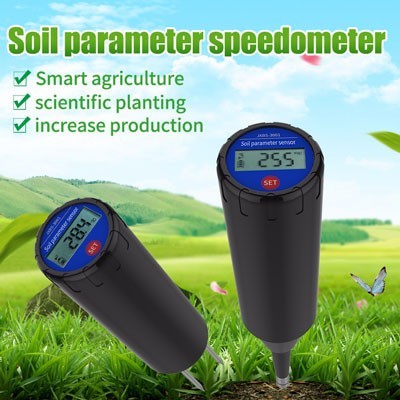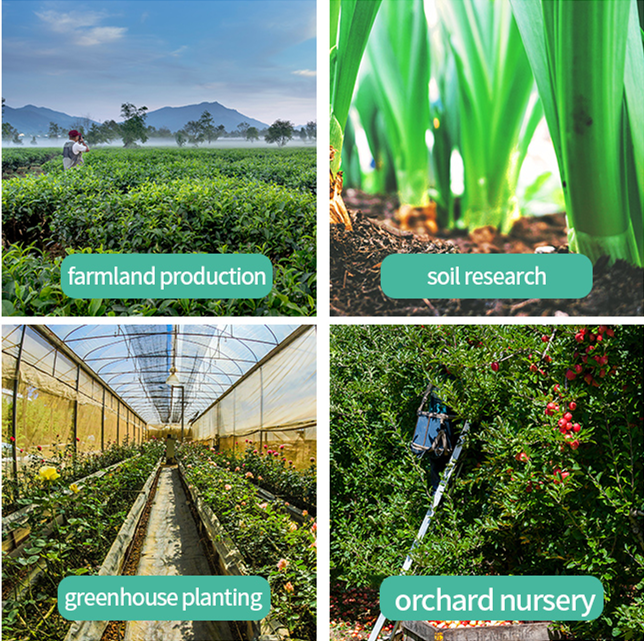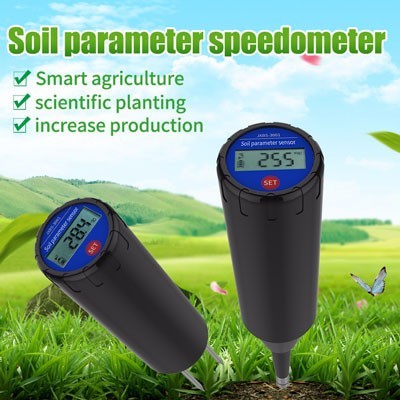Water scarcity is a global challenge, and efficient water management has become critical for sustainable development. Agriculture is one of the largest water-consuming sectors, making it crucial to optimize irrigation practices. Soil sensors have emerged as powerful tools for improving water management in agricultural systems. By providing real-time data on soil moisture levels, these sensors enable farmers to make informed decisions about irrigation scheduling and water conservation. This article explores how harnessing the power of soil sensors can revolutionize water management and enhance agricultural sustainability.
Understanding Soil Moisture Dynamics:
Soil moisture is a key factor in determining when to irrigat

e and how much water to apply. Traditional irrigation practices often rely on visual observations or fixed schedules, leading to inefficient water use. Soil sensors offer insights into the dynamic water content of the soil, allowing farmers to understand moisture fluctuations throughout the day and across different soil layers. By tracking soil moisture levels, farmers can determine optimal irrigation timing, avoiding both under- and over-irrigation. This precision approach optimizes water use and minimizes water wastage.
Real-Time Monitoring and Data Collection:
One of the significant advantages of soil sensors is their ability to provide real-time data on soil moisture. These sensors are installed at various depths within the soil profile, continuously monitoring moisture levels and transmitting data wirelessly. This real-time monitoring eliminates the need for manual soil sampling and labor-intensive data collection. Farmers can access the data remotely through smartphone applications or web-based platforms, empowering them with up-to-date information for efficient decision-making.
Strategies:
With soil sensor data, farmers can implement precision irrigation strategies based on specific soil and crop needs. Rather than uniformly irrigating an entire field, farmers can target irrigation to areas with low soil moisture levels, minimizing water use while maintaining crop health. Soil sensors help identify areas prone to over- or under-irrigation, allowing farmers to address these issues promptly. By tailoring irrigation practices to the actual water requirements of crops, farmers can achieve higher yields with less water, contributing to agricultural sustainability.

Water Conservation and Environmental Benefits:
Efficient water management using soil sensors brings significant water conservation benefits. By avoiding excessive irrigation, farmers can conserve water resources and reduce their impact on local water systems. This conserves valuable freshwater supplies, benefiting both agriculture and the environment. Additionally, by minimizing runoff and deep percolation through targeted irrigation, soil sensors help prevent nutrient leaching and the contamination of water bodies. Improved water management practices contribute to ecological balance and minimize the environmental footprint of agricultural operations.
Integration with Decision Support Systems:
Soil sensors can be integrated into decision support systems (DSS), combining real-time data with advanced algorithms for optimized water management. These DSS platforms utilize historical weather patterns, crop evapotranspiration rates, and soil characteristics to generate irrigation recommendations. By incorporating data from soil sensors into these systems, farmers can access tailored irrigation schedules based on site-specific conditions. This integration streamlines decision-making processes and further enhances water use efficiency, ultimately leading to sustainable agricultural practices.
Conclusion:
Harnessing the power of soil sensors is revolutionizing water management in agriculture. Real-time monitoring and data collection enable precise irrigation strategies, optimizing water use and conserving valuable resources. By integrating soil sensors into decision support systems, farmers can access customized irrigation schedules based on real-time soil moisture data, weather patterns, and crop requirements. Improved water management not only enhances agricultural sustainability but also contributes to water conservation and environmental protection. As technology continues to evolve, the potential of soil sensors for efficient water management will expand, supporting a more sustainable and resilient agricultural sector.







